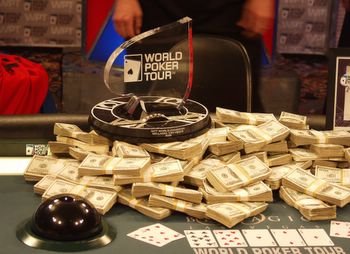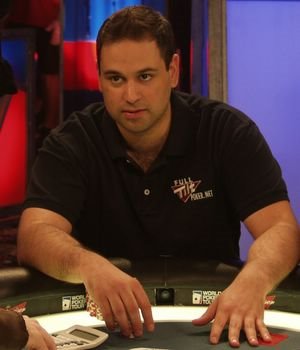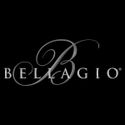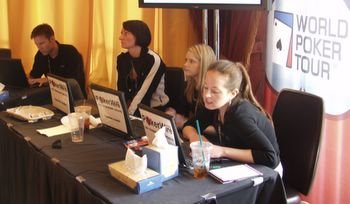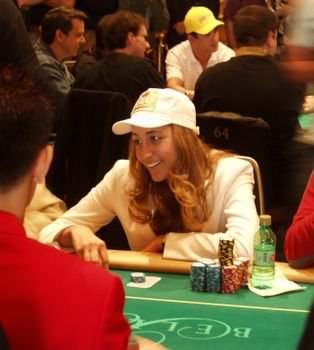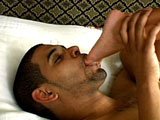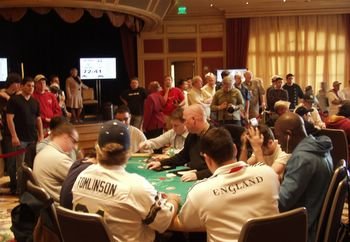"Simplicity is the key to brilliance." - Bruce LeeI was raised Catholic and grew up in a Jewish and Irish neighborhood in the Bronx. I went to an all-boys Jesuit prep school in Manhattan and then graduated from college in the South. I was surrounded by Baptists but joined a fraternity that was about 1/2 Jewish. During my first stint on Wall Street, I was a pure capitalist. When I moved to Seattle I discovered Eastern religions and read books on Zen Buddhism from Alan Watts
 By my late 20s, I developed a hybrid religion after interacting with people from multiple religions that included Druids, Mormons, Scientologists, Pagans, Rastafarians, agnostics, and Raelians. I came to the conclusion that my own relationship with God (or a higher being... if there is one) is no one else's business exception my own. While I wrestled with the absurdity of a devout faith in an imaginary person, I decided that there were interesting aspects of Judaism, Hinduism, Christianity, Islam, and Buddhism and that I shouldn't allow myself to be pigeonholed into one specific set of beliefs. My religion became a party mix of several major religions.
By my late 20s, I developed a hybrid religion after interacting with people from multiple religions that included Druids, Mormons, Scientologists, Pagans, Rastafarians, agnostics, and Raelians. I came to the conclusion that my own relationship with God (or a higher being... if there is one) is no one else's business exception my own. While I wrestled with the absurdity of a devout faith in an imaginary person, I decided that there were interesting aspects of Judaism, Hinduism, Christianity, Islam, and Buddhism and that I shouldn't allow myself to be pigeonholed into one specific set of beliefs. My religion became a party mix of several major religions.I began studying Scandinavian philosophy and found solace with existentialism. Then on 9.11, I heard about one of my former co-workers who jumped 104 stories to his death after he called his mother to said good-bye. That makes you question everything in your life and maybe the notion of a Godless and random universe makes more sense.
I watched The Big Lebowski too many times and soon discovered that I was wallowing in nihilism and believed in absolutely nothing. Living for too long in Las Vegas can do that to you. Life seems absurd when you see the depravity of the dark side of Sin City where people are trying to win their way out of poverty.
In January, my buddy Friedman showed me a book about Bruce Lee. I never knew Lee was a sage and a philosopher. Although he was a movie star and martial arts instructor, he was a also a devout student of Eastern religions. Since he lived in the West and understood the problems and stresses of modern society, he tried to adapt what he learned to the present and applied that to his mastery in martial arts as well as being a father, husband, and teacher.
I've read the book two or three times and it helped me to focus on what's important in my life. There were no specific instructions on what to do, instead it was a discussion of becoming self-aware and mastering the warrior within yourself to become successful. Lee kept describing martial arts as a form of self-discipline and less about fighting. It's about knowing your limitations and pushing yourself at the same time working hard at something to achieve a level of mastery. I've tried my best to apply what I learned from Bruce Lee and Taoists like Lao Tzu and resurrected the writing and poker aspects of my life. I hit rock bottom for both and I found a way out... and that was for me to go in, deep inside me to provide an honest evaluation of myself.
Attaining knowledge in poker really means grasping and attaining self-knowledge. Part of being a professional poker player is accepting the consequences of their actions as well as taking responsibility for themselves.
Writing is a way to honestly expressing yourself. So is playing poker. You can't bullshit yourself when it's crunch time, near the money bubble when you're in a position to make a move, but don't and fold like a pussy because you are afraid of failing and not making the money. Your weaknesses are exposed when you are confronted with decisions. Perhaps you can cover up your liabilities to your opponents (especially if you play online). But you can't bullshit yourself. You know you don't have the testicular fortitude to take those tough risks, or you don't have the disciple or restraint to reel your aggression in, or you don't have the patience to wait for a more favorable time to get your money in the pot.
Poker is a way to figure out your limitations and how you react in certain situations or during pressure points as DoubleAs has often discussed. But being honest with yourself is something that is very hard to do. No matter if it's poker or in your normal everyday life, the more you lie to yourself, the more it's going to hurt you and your loved ones in the future. If you are blinded with fame and glory at the poker tables and you're not 100% honest with yourself that you need several more years of training before you take the shot, then you're going to fall hard. And you might be indirectly taking people in your life down with you.
The first step is being honest with yourself. Then and only then can you begin the journey to figure out who you really are. Despite all your faults, it doesn't make you a horrible person. Nobody is perfect (well except Phil Hellmuth). And being able to identify your weaknesses allows you to point out your strengths. And that's what you need to focus most of your energy on... what you do best. Then you can take the time to improve those aspects of your life that are liabilities. The two pronged approach is a way to flourish and improve at the same time.
I've recently added this philosophy to how I write and play poker. I focus on what I do best... tell stories and set the scene and that's been the driving force behind my coverage of the WPT Championship. And for the first time I had fun. That was what I thought this job was going to be like. But I lost focus and allowed external forces to shape and mold how I cover a tournament and I got caught up thinking and obsessing over trivial matters when I lost the love for what's fun about poker and getting be paid to write.
I had to reassess how and why I played poker. I figured out my strengths (Limit Cash Games) and weaknesses (NL tournaments). So I took my remaining bankroll and I focused on playing Limit and moving up in levels as fast as I can to maximize my ability to win as much money as possible. At the same time, I cut back on NL tournaments. I read and studied NL strategy. I talked to pros that I respect and trust and they gave me tips on how to improve. I discovered that I had more holes in my tournament game than I realized. Knowledge is something that never ends after you finish reading Super System. You have to constantly go back and re-read it and keep pushing yourself to learn more and more about the game.
I've been trying to plug those leaks and I think I've been doing much better over the last few months. I made a final table at the LA Poker Classic media event and I took second in a WPBT event. I was in 13th place on the WPBT-POY leaderboard, which is something I'm excited about. It's one thing to figure out your problems, it's another to actually apply solutions to them and make it work.
"I feel this great creative and spiritual force within me that is greater than faith, greater than ambition, greater than confidence, greater than determination, greater than vision. It is all these combined... I feel this great force, this untapped power, this dynamic something within me. This feeling defies description. There is no experience with which this feeling can be compared." - Bruce Lee
There's something that Japanese Zen masters refer to as satori. Chinese Taoists call it tun-wu. Basically that entails begin able to tap into the vast energy cycles that encircles life. Learning to tap into these energy cycles leads to a complete and total harmony of the mind and body that culminates in a great spiritual awakening. I've hit those moments during long writing sessions when I'm tapping into my creative energy pool. I know that musicians and painters struggle to get to that place all the time. The ones that do have their music and art flow right out. Professional athletes call it "the zone." Wall Street traders call it being "locked in."
When Tom Browning pitched a perfect game for the Reds in September of 1988, he tapped into the vast energy cycle within him that boosted his ability to a level of total perfection. As non-enlightened humans, we're prone to mistakes and notions of self-doubt. Complete perfection is impossible. However, there are moments when one can achieve total perfection. In poker we call that the "rush." Flopping sets with pairs. Hitting your ace with A-K in a race situation. Catching that two outer for a resuck.
Some professional poker players are able to play for hours and even days if they properly focus and tap into those internal pools of energy. I've seen fleeting moments during the 2005 WSOP. Johnny Chan was on fire during the final table of the Pot-Limit Hold'em event when he went on to win his 10th bracelet beating The Unabomber heads-up. Being able to delve deep and tap into your energy cycle is not going to give you good cards. However, you will be able to harness the "warrior within."
Bruce Lee spoke about how the martial arts warrior is a symbol that represents that great inner energy force. If harnessed properly, the warrior wins numerous battles and crushes the competition. But if that warrior force is mishandled, ignored, and neglected... then we end up achieving far less than what we are capable of doing. That not only sums up my faltering poker game, it also is a blue print for why I fucked up certain aspects of my life.
I feel as though my creative writing force is like a raging river, sometimes as powerful as a massive waterfall and all I have to do is jump in and go where the water takes me. Other times it's just a small creek, barely flowing by. Now with poker, it's the opposite. During my recent downswing, I have not been able to find that inner energy source. It feels like I'm wandering around the desert for months unable to find water. Sometimes I stumble upon it and I'm riding the wave and my entire poker game makes sense. I'm folding when I should and I'm hitting my big draws and I'm making amazing decisions. But then it fades out and I'm lost again. I know that my poker game can achieve harmony and perfection. Those moments do exist. I just have to work harder to focus and when I find it, hold on it...
The "warrior within" analogy fits better to poker than writing. Poker is a fight. It's an alley brawl. A major tournament is like one of those Battle Royales in wrestling matches where there's 30 fighters in the ring at once. Sure you need to catch cards and luck plays a tremendous role, but a lot of success in poker is mental toughness and being able to maintain focus, patience, and discipline over long periods of time. In our instant world of online poker and playing 6 or 10 tables at once, it's a chore to sit at a full table in a crowded casino with a swarm of media running around while you are folding thousands of crappy hands during in a seven week tournament like the WPT Championships.
That's why I'm amazed that a guy like Doyle Brunson at 72 or 73 can still gut it out with kids that are 50 years younger than him. He's older than their grandparents for fucks sake, yet Texas Dolly is a poker God for a reason. He has adapted over the last fifty years and constantly changed his game and attitude. He never believed that there's one right way to play poker. And no matter what the game or the circumstance, he's always figured out a way to win. Brunson is operating on a different level than all of us. That's why he's the best all time. No matter if it's cash games or tournaments, he'll rip your heart out. He's channeled the warrior within and has mastered that spiritual aspect of poker. Sure we like to talk about how amazing poker players like Phil Ivey, Erick Lindgren, or The Grinder are today. But will they be crushing their opponent's souls in 2056?
My poker game needs improvement and like a garden, it needs to be maintained everyday. Sometimes improving your poker game has nothing to do with reading books, learning how to read others, and playing well in tournaments. The first step to becoming a poker master is improving yourself and making sure your life is in harmony. A lot of players show up to the tables and think that they are prepared to play poker, but the rest of their life is in shambles. Unless they are harnessing the power of the warrior within, they'll going to fall short of true mastery.
I began writing (off the blogs) about my reactions to the book that Friedman gave me, The Warrior Within
To sum up, you need to achieve self-knowledge and seek out the truth about yourself. After you can determine your strengths and weaknesses, you need to focus on what you do best while taking time to improve your shortcomings. You need to know what your limitations are and constantly try to push past those barriers. At that point, you can begin channeling the warrior within and tap into those large energy forces inside us. That will help push you towards achieveing your goals in life and in poker.
This is the first in a series of posts that will include a running dialogue over the next few weeks about The Warrior Within. Stay tuned for part II.
... to be continued.


